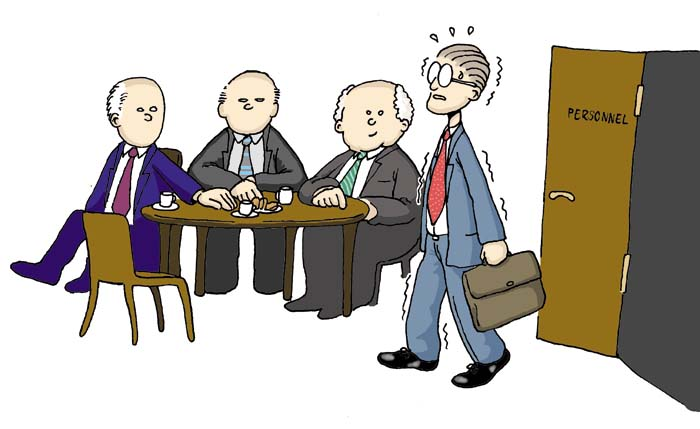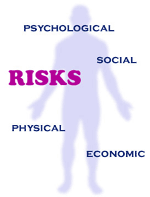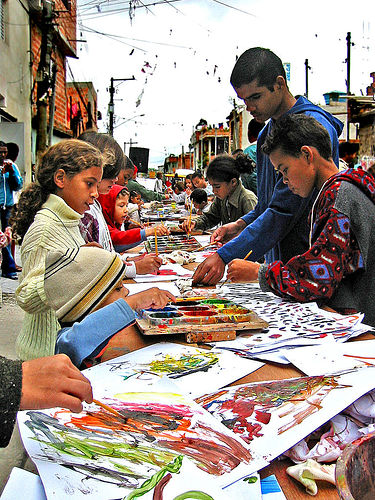When reading the newspaper or browsing the internet I tend to be drawn to articles in which someone is developing a solution to a widespread (or at least widely talked about) problem.
May 3, 2007 - 9:14am
May 1, 2007 - 9:28am
 The Improve Group has conducted interviews with a wonderful variety of people for a great variety of disciplines. Interviewees (also referred to as: discussants, informants, subjects, participants or conversational partners) add critical and valuable perspectives about programs. Like focus groups, interviews contribute to a more in-depth, comprehensive understanding of the issue at hand.
The Improve Group has conducted interviews with a wonderful variety of people for a great variety of disciplines. Interviewees (also referred to as: discussants, informants, subjects, participants or conversational partners) add critical and valuable perspectives about programs. Like focus groups, interviews contribute to a more in-depth, comprehensive understanding of the issue at hand. April 2, 2007 - 3:24pm
![MCj02975650000[1].jpg](/sites/default/files/weblog/MCj02975650000%5B1%5D.jpg) The Improve Group has conducted focus groups for clients from a great variety of disciplines. Focus groups are a good way for researchers to learn about the human experience.
So, the Improve Group calls you to participate in a focus group – what exactly are you getting yourself into?
What is a Focus Group?
The Improve Group has conducted focus groups for clients from a great variety of disciplines. Focus groups are a good way for researchers to learn about the human experience.
So, the Improve Group calls you to participate in a focus group – what exactly are you getting yourself into?
What is a Focus Group? March 29, 2007 - 3:32pm
An article I read in the NY Times about the federally funded Study of Early Child Care and Youth Development (SECCYD) stated that keeping a preschooler in child day care a year or more increased the chances that the child would become more disruptive in class. I found even more interesting the study’s finding that this result held up regardless of the child’s sex or family income, and regardless of the quality of the day care center.
March 21, 2007 - 10:10am
Our current evaluation of Performing Arts Workshop's Artists-in-Schools program involves researching how the effects of the program differ for students in general and special education. A concern of ours is how to conduct our research in a way that identifies and accommodates the needs of students in special education without adding to the stigma of being in special education.
March 20, 2007 - 2:41pm
 When conducting an evaluation, we are required to minimize the risks to participants; however we sometimes struggle to identify what those risks may be and how they relate to any potential benefits. Particularly when the study involves issues like the arts, academic achievement or interest in extra-curricular activities, the risks may seem very remote or negligible.
When conducting an evaluation, we are required to minimize the risks to participants; however we sometimes struggle to identify what those risks may be and how they relate to any potential benefits. Particularly when the study involves issues like the arts, academic achievement or interest in extra-curricular activities, the risks may seem very remote or negligible. February 27, 2007 - 1:11pm
We thought we’d share news about an interesting analysis method we recently used…
February 27, 2007 - 9:31am
For my Master’s thesis in the Department of Geography at the University of Minnesota and with the help of an Independent Research Grant from the Improve Group, I conducted a study on the accessibility of healthy amenities, primarily healthy food, in the city of Minneapolis. This study examined one aspect of how the built environment can potentially impact health. I mapped the amenities against different neighborhood demographic, economic, and crime characteristics.
February 19, 2007 - 9:52pm
Strategic planning has been used by public and non-profit organizations for decades. Planning has both its adherents and its detractors--those who feel it is a useful exercise find that it helps to set direction and keep varied interest groups focused on issues important to the key mission. Others find it nearly impossible to create plans that anticipate all possible future scenarios, and particularly that monitoring progress falls to the wayside as day-to-day reality sets in.

